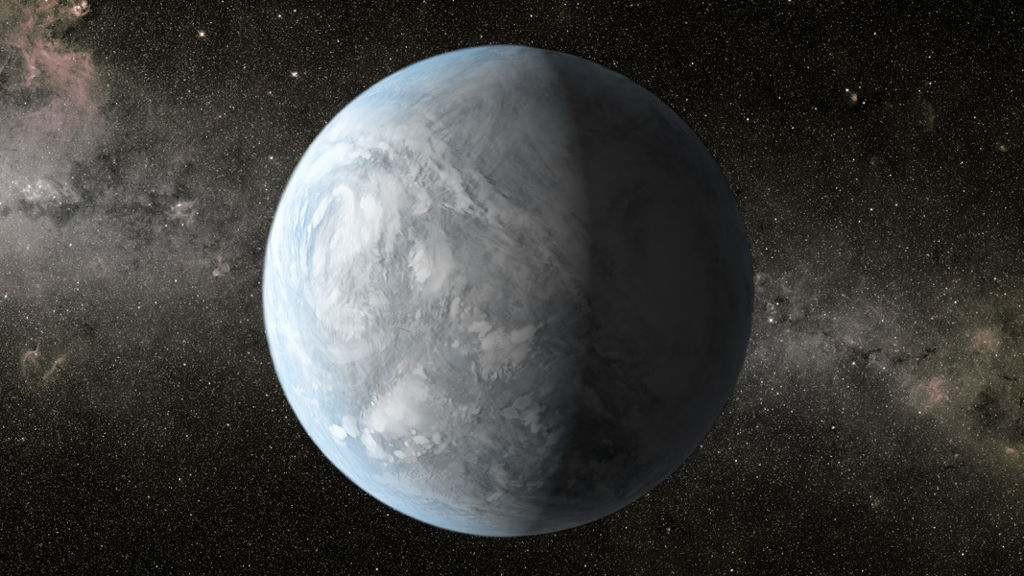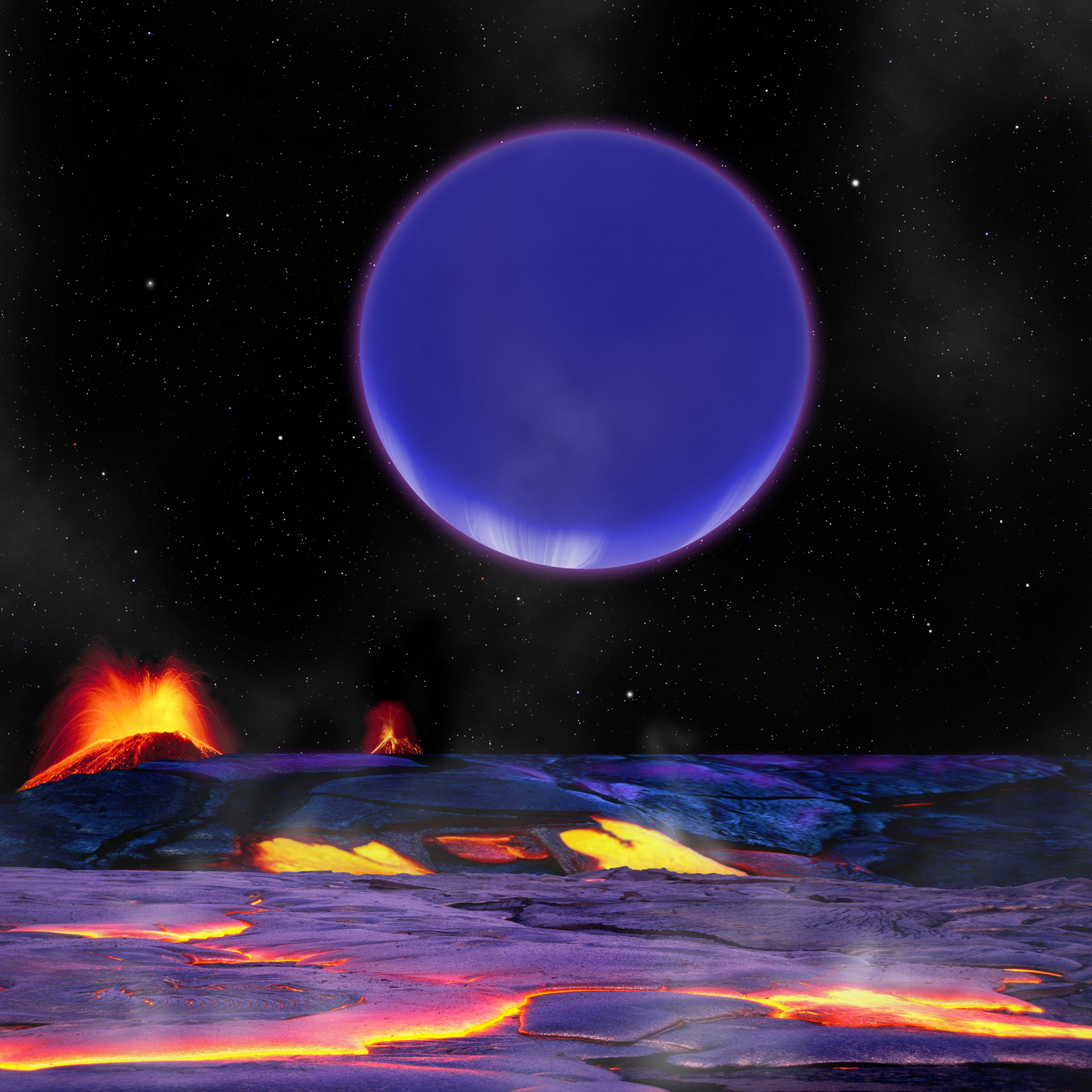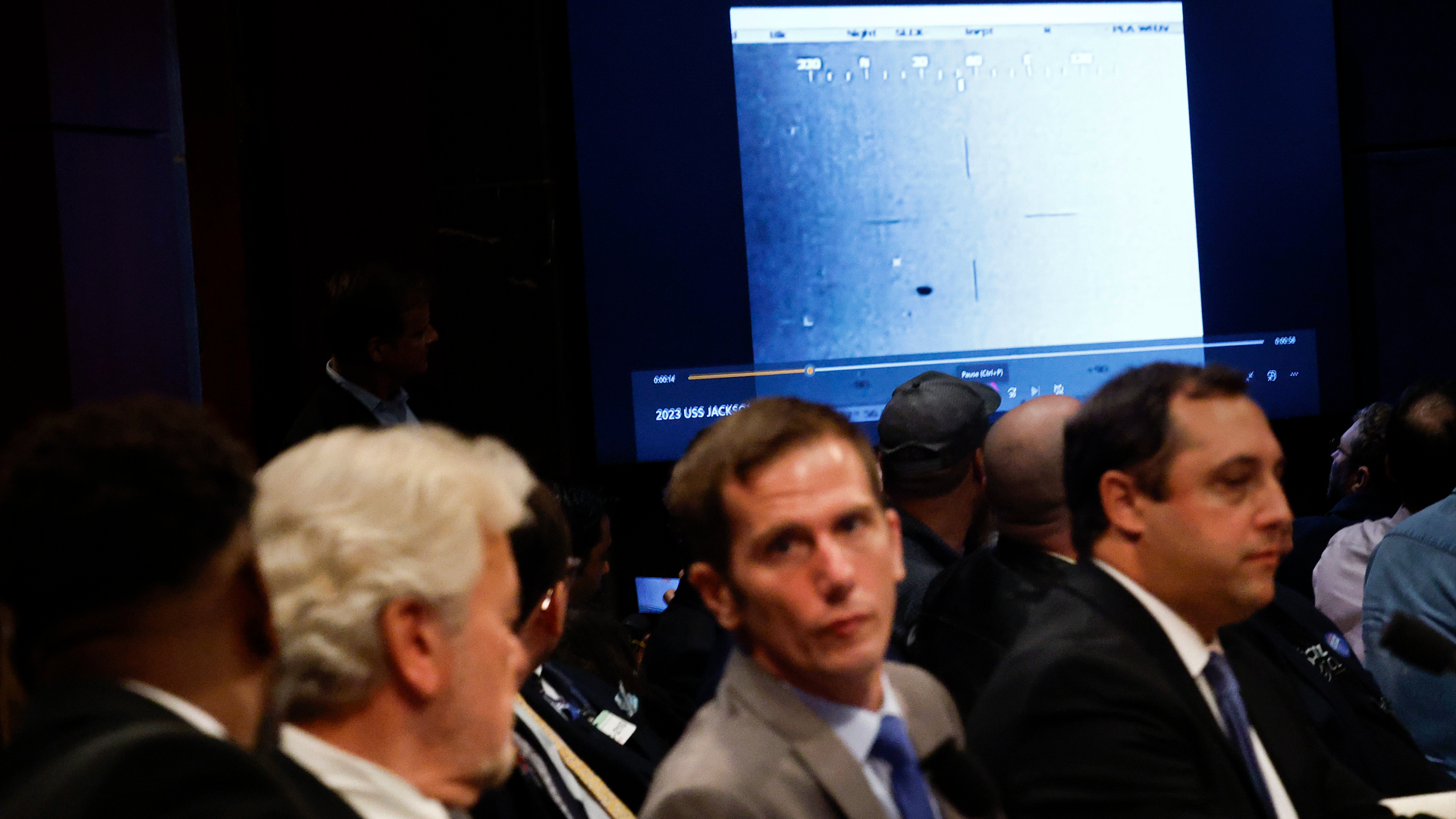Hunting for Alien Worlds (Part 8): The Danger of Crying Wolf About 'Earth Twins'

At the 2012 Astrobiology Science Conference, Astrobiology Magazine hosted a plenary session titled "Expanding the Habitable Zone: The Hunt for Exoplanets Now and Into the Future." Originally formulated as part of our "Great Debate" series, this panel of exoplanet hunters and thinkers held a lively discussion about some of the most important issues facing the search for and understanding of alien worlds orbiting distant stars.
In part eight of this "Hunting for Alien Worlds" series, the panelists debate whether the many press releases about the possible habitability of newfound planets risk "crying wolf".
David Grinspoon: The last thing that we will be discussing is the area of public perception of exoplanets, and how we communicate. What are we doing right? What are we doing wrong? [The Strangest Alien Planets]
Obviously that interweaves with the other questions that we’ve been discussing. Both because of the fact that we depend on public support for what we do, and also with the show of hands that Sara asked for earlier, it’s clear that our interest in finding potential habitability as the most driving interest in exoplanets closely aligns with at least what what we perceive of as public perception of exoplanets. So I think there's a lot of overlap.
I have several questions written down, and we don't necessarily have to get to all of them. But the first is about whether we risk "crying wolf" about exoplanets. As you mentioned, this is being done by a lot of groups on their own. Rogue groups, if you will.
And that's fine, but of course when we have a discovery we think is newsworthy, we want to put out a press release. And it’s a much more sexy press release when you can say you found a planet in the habitable zone. And so as a result, the news is perhaps in danger of being saturated with these kinds of reports. Maybe that's okay, but maybe not.
I remember during the Galileo mission to Jupiter when there were all these new discoveries about [Jupiter's moon] Europa, and every single press release was slanted in terms of the life angle. Every single thing that was discovered about Europa, about geology, about the thin atmosphere, or whatever, the headline was, "Scientists discover possible evidence of of a biosphere on Europa." [Europa, Mysterious Icy Moon of Jupiter (Photos)]
Breaking space news, the latest updates on rocket launches, skywatching events and more!
To the point where my former high school English teacher emailed me and said, "Why do you guys keep putting out the same story?" And I worry a little bit about exoplanets, that there are so many news stories that seem similar that, when we do make a really, an even more important discovery, the news release will seem like something the people have already heard. Is that a problem? Should we worry about that?
Vikki Meadows: I think that is potentially a problem. In that the community — the general community, not the scientific community — seems to be getting a bit blasé about this. Which is a problem.
I think part of the aspect, though, is that we find these potentially habitable planets, and they often have at least one thing going for them, but maybe a couple of things that aren't. So there's this sense then that you can be just a little bit habitable, or you can be more habitable. And I think we need to try and get some kind of metric in there when we give out these press releases.
To say, "Well, this is kind on the hairy edge of habitable." Yeah, it’s in the habitable zone, but it’s way too big and it’s got this problem and that problem; it’s tidally locked or whatever. And if we can convey that so that people understand that when do get that 90-percenter that we become extremely excited about.
But I don't understand how we are going to be able to convey this or get it across. We announce things that are just barely possibly habitable and have a number of problems with them, but the public doesn't know that.
David Grinspoon: Well, do you think something akin to the Torino scale for dangerous asteroids? Astronomers got together and came up with a scale so that if there was a news report about a potential Earth impact, that they didn't all seem the same. I think that actually has been a pretty effective system.
Sara Seager: That's what I was getting to before when I said probability.
David Grinspoon: Okay.
Vikki Meadows: Yeah, habitability factor.
Dirk Schulze-Makuch: Actually, Abel Mendez, Alfonso Davila and I, we have a session on Thursday exactly about that topic, Metrics and Astrobiology, and how to rank or prioritize exoplanets. [9 Exoplanets That Could Host Alien Life]
And one thing how I feel about it, I mean it may be a point confusing to the public, but this is really how science fundamentally works. That people put something out and then they should be free to put it out and some of it getting refuted and some of the things getting confirmed. But maybe there's a larger angle to it.
I mean, since all your experience with Europa, they always wanted to slant it to the life angle. There's the exoplanets, always want to put it to the life angle. So there must be a huge support for astrobiology and life in general because there are so many people interested in it.
And how come that we cannot harvest it somehow? How is it that we are still strapped for money for missions related to astrobiology? Strapped for money for origin-of-life research, when there are so many people interested in that? I think that is the bigger question.
Eric Ford: I'll take the pessimist view which is that, even if all astronomers are extremely responsible in what goes into a press release and a scientific paper, the press will print a headline, which maybe some them will be responsible but some of them won't. And the ones that aren't are the ones you will notice, and I think in some way it’s beyond our control. And we're responsible for what we do and then we just watch what the media and the public do.
Sara Seager: And an example just happened here where we were talking about Earth-size versus Earth-like. Those are two very different concepts. And it's almost impossible to communicate that. Even professionals slip up.
Earth-like means it’s like Earth, with oceans and land and trees and everything great. Earth-size could be anything. It could be hotter than anything that you could imagine and be Earth-size.
Dirk Schulze-Makuch: Yeah, Earth-size. I mean, the moon is pretty close to Earth-size.
Eric Ford: In the habitable zone.
Dirk Schulze-Makuch: Yeah. In the habitable zone.
Vikki Meadows: And Venus. Venus is nearly Earth-size.
David Grinspoon: That's right.
Sara Seager: But I think there is a fraction of some of the public who aren't as discriminating as perhaps we are here or our friends are, and they just love hearing about exoplanets. These people will just take anything any time. It’s in the news because people want to hear about it.
David Grinspoon: Well, part of the concern for me is I have this fantasy which I am hoping is not just a fantasy: That once we really find a planet that is Earth-like in the sense that everything at least we know about it is consistent with it being an Earth-sized planet, that should have liquid water, you know a legitimate Earth twin, that I believe probably Kepler will announce sometime in the next couple of years, that they found some of these. And once that happens then, I just imagine that will capture the public imagination in a huge way.
Sara Seager: Well, that day is a very long time off. Kepler will tell us the fraction of Earth-size planets. We won't know anything about whether they’re Earth-like. We'll have a radius. And if we're lucky, a mass. [Gallery: A World of Kepler Planets]
David Grinspoon: But I mean Earth-like in the sense that they are an appropriate distance from an appropriate star.
Sara Seager: Yes, actually in fact there is a specific jargon people have spent hundreds of hours trying to define. We could call them potentially habitable.
David Grinspoon: Yeah, okay, fine. So once Kepler announces the existence of potentially habitable planets, that for everything we know about them, which granted won't be very much — they could be dead ringers, or near-dead ringers....
Sara Seager: We're not going to get near-dead ringers. Kepler will tell us the size of the planet. It will know how much incident radiation from the star is falling on that planet. We won't know if it has an atmosphere and all those other habitable issues we talked about at the beginning of this.
So, Kepler won't find a dead ringer. Kepler will tell us how common Earth-size planets are, which is the first step in eventually finding those dead ringers.
David Grinspoon: Right, of course. But my point is, once we find those planets that, for all we know, could be Earth-like — which we haven't quite found yet; at least hasn't been announced yet, but I believe it will be soon — then I think that those planets ought to have names that are not just like Gliese 581b. They ought to have evocative, romantic names that that sound like places.
And furthermore, that every school child will probably know about those planets. And that they'll have the potential to capture the public's imagination in a huge way. My fantasy is when that happens, that there will be a groundswell of public interest in wanting to know what more we can learn about those planets.
And that will lead to the motivation and ultimately the funding for the kind of instruments that could do that. However, I worry that the impact of that would be blunted by this consistent pounding of news stories that we’ve already discovered something like that, even though we really haven't.
Sara Seager: I don't think we are that worried. We agree that "never cry wolf" is a massively huge problem. But someday when there is a consensus among scientists, and we all carry the same message forward, that yes indeed on the Torino, or we have a new name for it, or whatever scale we chose, that we are all in agreement that this one is our best. I think people will still be paying attention to that.
Eric Ford: The basic issue is, it is not like one day we have no clue and the next day we know. It’s going to be: we find some fraction of objects that are sort of similar, then some fraction of those we learn a little more about. And the others may actually be better, but we just can't observe them as well.
I mean, it’s science and there'll be a gradual transition between knowing nothing and having different pieces of information by different corners of your jigsaw puzzle.
David Grinspoon: So, why then does the Kepler team keep putting out news reports where they talk about finding the Holy Grail?
[Laughter]
Eric Ford: I don't know.
David Grinspoon:"And the Holy Grail is..." I've seen that phrase used a hundred times.
Sara Seager: The Kepler team itself did their absolute best not to do that. We don't know where the communication got broken. But Kepler found a relatively big planet, I mean 2.2 Earth radii, in the habitable zone. And then it found some Earth-sized planets, or smaller, that were not in the habitable zones. Those things kind of got all mixed up. So where that communication process broke down, we’re not really sure about.
David Grinspoon: Well, what about this question that I raised before and it got a little bit of a chuckle. But I think its really worth some thought, about the naming of these planets. Why do we insist on using these names that seem so boring?
Sara Seager: I'll tell you why. I think we touched on this several times already. The individualist exoplanet people can not agree on anything. And in fact, a while back there was a group, I'm not going to mention names here because some of you might be here. There was a group who wanted to name some of the hot Jupiters.
They picked special names for them and they wanted to call it that. And other people in the field got angry because those individuals who picked a name and started using it, they didn't discover it, they were just one of like 30 people who worked on that object. Well, was it their right to name it?
So then you got this whole internal kerfuffle and nobody ever agreed and we went back to the catalog names. Personally I think we should have capitalized on this a long time ago and just named them when they were coming out. You know, solicited donations for naming rights. And we could have had our mission...
Someone from audience yelling out: For teachers, it sucks to have the kids have to memorize over 500 planet names.
Sara Seager: Yeah, do we want to have 500 planet names? Yeah, but for whatever reason the community agreed to be boring.
Dirk Schulze-Makuch: I think at some point when we actually know more about those exoplanets and they're becoming a place, they're more characteristic, I think that automatically they will be getting names. Like Eris and some of those planetesimals in the Kuiper Belt, and so on.
Sara Seager: There're actually International Astronomical Union rules about how things can be named. Solar system objects get names, and exoplanets objects do not for now.
Vikki Meadows: Yeah I mean that's where it has to be, within the IAU.
Sara Seager: If there was a movement toward that, and there was consensus in the broader exoplanet community, then probably something could happen.
David Grinspoon: Well let’s get those Blue Marble Space young scientists who are so good at getting community movements going to work on this topic. By the way, anybody that thinks that kids won't memorize 500 planet names just doesn't know anything about kids. Have you ever talked to kids about dinosaurs?
[Laughter]
You can watch the video of the entire Great Exoplanet Debate here: https://connect.arc.nasa.gov/p68qflmgnhk/?launcher=false&fcsContent=true&pbMode=normal
This story was provided by Astrobiology Magazine, a web-based publication sponsored by the NASA astrobiology program. Follow us @Spacedotcom, Facebook or Google+.

Space.com is the premier source of space exploration, innovation and astronomy news, chronicling (and celebrating) humanity's ongoing expansion across the final frontier. Originally founded in 1999, Space.com is, and always has been, the passion of writers and editors who are space fans and also trained journalists. Our current news team consists of Editor-in-Chief Tariq Malik; Editor Hanneke Weitering, Senior Space Writer Mike Wall; Senior Writer Meghan Bartels; Senior Writer Chelsea Gohd, Senior Writer Tereza Pultarova and Staff Writer Alexander Cox, focusing on e-commerce. Senior Producer Steve Spaleta oversees our space videos, with Diana Whitcroft as our Social Media Editor.

